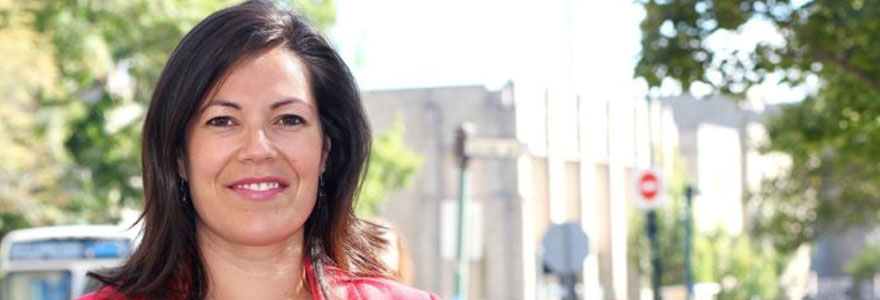News and Updates
Contact
Faculty of Social Science
Social Science Centre
Room 9438
Western University
T. 519-661-2053
F. 519-661-3868
E. social-science@uwo.ca
Richmond to lead Ontario hub for community-based Indigenous health training
January 12, 2018
Western University has become the hub of a provincial network for Indigenous health training that is both culturally relevant and scientifically rigorous.
Launched January 12, with working meetings and ceremony, the Indigenous Mentorship Network Program of Ontario includes 13 research institutions and a team of 70 researchers, trainees and community collaborators.
The program represents a fundamental reorientation in how health research takes place in First Nations communities, said Chantelle Richmond, Associate Professor in the Department of Geography, who serves as the Network’s program leader.
“For the first time, we are connecting the networks of the Indigenous community with the networks of academia,” said Richmond. “We are putting communities in the driver’s seat on health research that matters to them.”
The new network will support research by Indigenous people for Indigenous people, with emphasis on the health and social issues that matter to Indigenous people. It is intended to help communities identify and prioritize their health needs; to enable meaningful, measurable and relevant study; and to train the next generation of Indigenous health researchers.
“Never before has there been such a concentration of Indigenous people doing Indigenous health research,” Richmond said. “I don’t think we have had so many Canada Research Chairs in one group, all working on the same issues.”
Richmond, an Anishinabe scholar from Pic River First Nation, is trained as a health geographer, exploring the relationship between people’s health and the environments in which they live, work and play.
While health research in Indigenous communities in previous decades has centred on issues such as hospital location and the spread of disease, it has led to little lasting, measurable change, she said. Challenges still include higher disease rates, more morbidity, more chronic infections, social inequity, inadequate housing and food insecurity.
“Despite an increase in research on Indigenous topics in Canada, inequities are growing and outcomes are not improving,” she said. “The only way to change that landscape is to work with the community, through diverse, interdisciplinary teams of trainees who know intimately the landscape of the communities.”
What’s needed is to recognize that health is infused with cultural, social, political, geographic and environmental context, Richmond said. Studying Indigenous health must then include a deep understanding of traditional knowledge about the land and the people’s place in it.
The driving force behind the network can be exemplified by the Anishnabek phrase Mno Nimkodaddig Geegi (We are all connected). That includes, Richmond said, the inter-relationship between youths and elders; health and environment; cultural practices; institutional policies, and many more.
For someone in the Far North, the research might mean a focus on the inter-relationship of mental health and addictions. For another community, it might explore be how environmental degradation has affected traditional hunting practices; and still another community might want to understand the impact water quality has had on sustainable fish populations.
Epidemiologist Jennifer Walker, who holds a Canada Research Chair in Aboriginal Health at Laurentian University, said there’s often a lack of Indigenous health data and lack of access to data. “Through this mentorship network, I have an opportunity to be mentored by those who walked before me and I also have an opportunity to mentor students who are coming through.”
“We are fostering training environments that pair world-class researchers with local knowledge, local experience, local needs and priorities,” said Chelsea Gabel, Canada Research Chair in Indigenous Wellbeing, Community Engagement and Innovation at McMaster University. “Ultimately, these relationships and these Indigenous methodologies for improved health outcomes will last longer than the research projects themselves.”
The Ontario-based network aligns with the other seven provincial nodes of the Indigenous Mentorship Network Program, which is funded by the Canadian Institute for Health Research.
The network will provide researchers with well-supported training opportunities and environments for community-based learning and research. It will offer scholarships, seed grants, webinars, research innovation and publishing opportunities to trainees, postdoctoral fellows and new investigators. Hundreds of young researchers will receive training through the program.
It will operate from Western on funding of $1 million from the Canadian Institute for Health Research (CIHR) and $1.2 million from other partners during the next five years.
Gerrilynn Manitowabi, project officer with the CIHR Institute of Aboriginal Peoples’ Health, said the goal of the funding agency is to allocate 4.6 per cent of the budget to Indigenous health research.
The governance structure includes Northern researchers at Lakehead, Laurentian, Nipissing universities, as well as the Health Sciences North Initiative and the Northern Ontario School of Medicine. In Central Ontario, participants include Western, McMaster, Guelph and Toronto universities, plus St. Michael’s Hospital. In Eastern Ontario, participants are Queens, Trent and Ottawa universities.
A Community Advisory and Elders’ Council will play a key role in ensuring the network continues to serve the needs of scholars, trainees and communities.
Said Richmond, “Geography, to me, is about much more than a spot on a map. It’s about a sense of place and identity, and what that meaning holds for people, and that’s really key for Indigenous people”
Western officials further stressed that this research is an example of the commitment the university is making to Indigenous Studies and research – and the broader issues of accessibility, scholarship and cultural impact – as outlined in its Indigenous Strategic Plan.
Chantelle Richmond spoke with CTV Your Morning's Ben Mulroney about the network:

